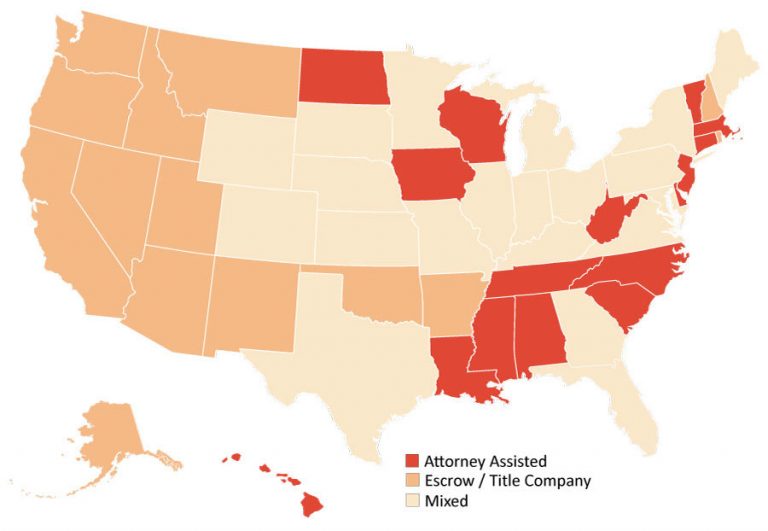6 Tips to Ensure a Smooth House Closing
Real estate closings can be fraught with complications and setbacks, but they can go smoothly and quickly — if planned for carefully.
You may think that an “all cash” deal would go through closing faster than a sale that involves a mortgage — but that is not always the case. Unresolved title issues, such as an unknown mechanics lien from a former building contractor or boundary or unsettled disputes from the past can show up.
Also, serious structural problems with the property may be revealed in an inspection report, and they can cause weeks or even months of delay. The buyer’s cash to close might not arrive to the closing agent in time, or the wrong amount may be received. In order to prevent these potential problems — and others — there are several things you can do.
One common issue that often delays a closing is repair disputes. If you are the Seller, it’s a good idea to have a general building inspection before you list your house for sale. You may find problems that you were previously unaware existed, and you can then either correct them, or consider selling your property in an “as is” condition.
Keep in mind, however, that you may be required by law to disclose any “known” structural defects to the new buyer. You may not necessarily have to repair the problem, but you would need to be sure that you make an exclusion for that needed repair in your agreement with the buyer. Prior to closing, be sure that the property is in the condition promised — all required repairs completed and the house and yard cleared of any personal items, including old cars, tools, trash.
Ask a real estate agent, local title company or closing agent to perform a “preliminary title report” for your review — especially if you suspect there is or might be a possibility of a prior lien, estate or divorce problem that could affect your title to the property. If you review this report early on — even before you offer your house for sale — and clear up any existing issues, you will avert a possibly long delay due to title defects.
If you are a Buyer who will be getting a mortgage to finance the property, there are several things you can do to speed up the loan process and be sure the deal closes on time:Get conditional approval before making the offer. Getting pre-approved for a loan will help you determine how much you can afford and give you a realistic expectation of the price range for your new house. Buyers who have been pre-approved by a lender are generally those who are able to finalize their loan application faster and more efficiently than ones who have not been pre-qualified.
- Have your documents together. Assemble your bank statements, pay stubs, tax returns and other documents as soon as possible — even before you begin looking for a house to buy. Often, getting these documents together takes time and the better you prepare, the faster your loan will be approved — and processed. If you are unsure of which documents you need, ask your local bank for a “mortgage loan checklist.” Most lenders post these checklists online, and they will readily give you a guideline regarding what you will need to provide.
- Work with an experienced mortgage lender. Whether you use a mortgage broker, or work directly with a lender, ask what the average time is for processing a loan application and, specifically, how quickly they will be able to complete your mortgage. Try to anticipate potential setbacks, like any credit or employment-related problems you know exist and ask what you need to do to clear those up.
- Make sure that you have the money for closing costs. The lender will require proof that you have sufficient funds for the down payment and closings costs prior to closing. Be sure those funds are readily available, and be prepared to wire or present a cashier’s check on the day before closing.
- Create a timeline for any repairs the seller is obligated to make. Make sure any repairs the seller has agreed to make are completed on time — ideally, at least several days before your scheduled closing. Do the final walk-through inspection the day before closing, or sooner, if the seller agrees.
- Contact your lender on the day before and on the day of closing. Lenders notoriously ask for information at the last minute — a copy of a canceled check, proof of insurance, or a recent bank statement. A day or two before closing, contact your lender and ask if everything will be ready for the closing date. On the day of closing, verify with your closing agent that the loan documents have been received. If not, ask what is causing the delay and if there is anything you can do to help speed things up. Often, it is a case of just one missing document or one final verification.
Once the repairs have been made, the title issues resolved, the loan approved, and all the documents prepared for signature, both the buyer and seller can further assure the closing goes smoothly by reviewing all of the documents at least 24 hours before all the concerned parties meet. (If you close after Aug. 1, you will be able to review documents three days before settlement.) This is your chance to ask any final questions you may have or point out any errors you notice.
Stay in control of your closing, and try to be as involved in the process as possible. Being prepared can mean the difference between a hassle-free closing and a delayed often contentious transaction.



